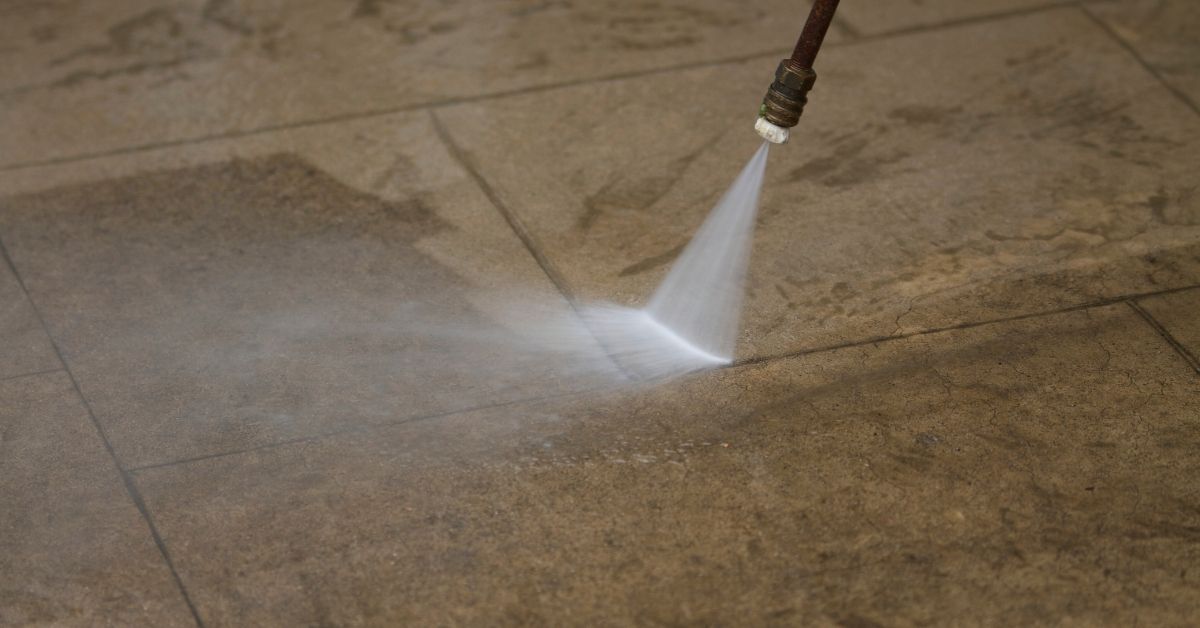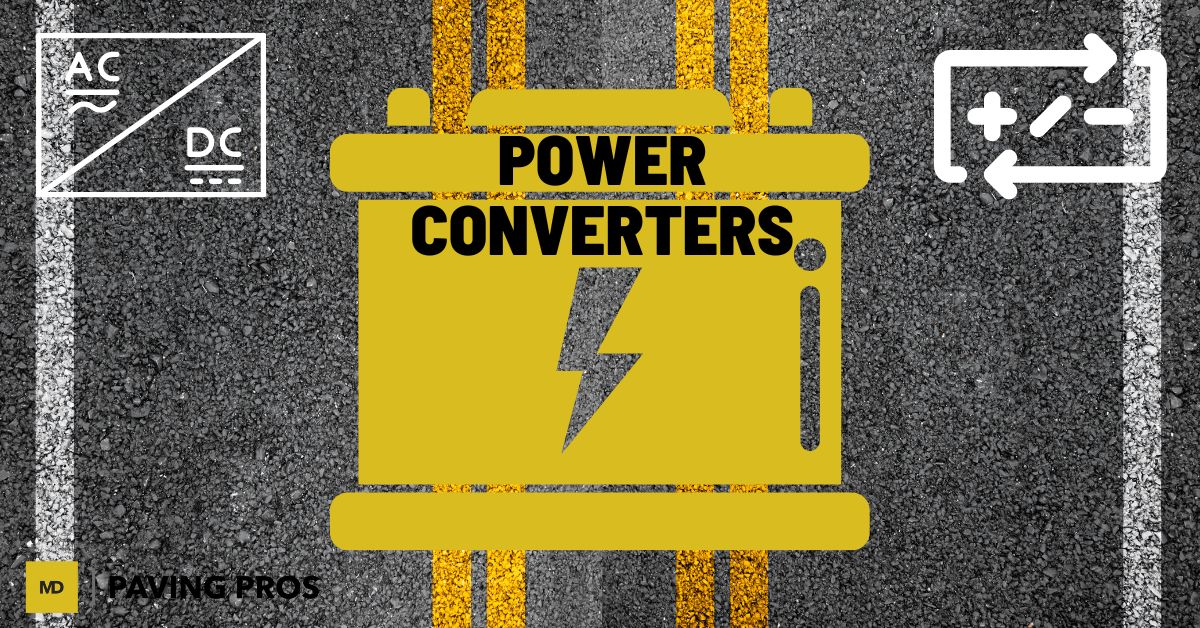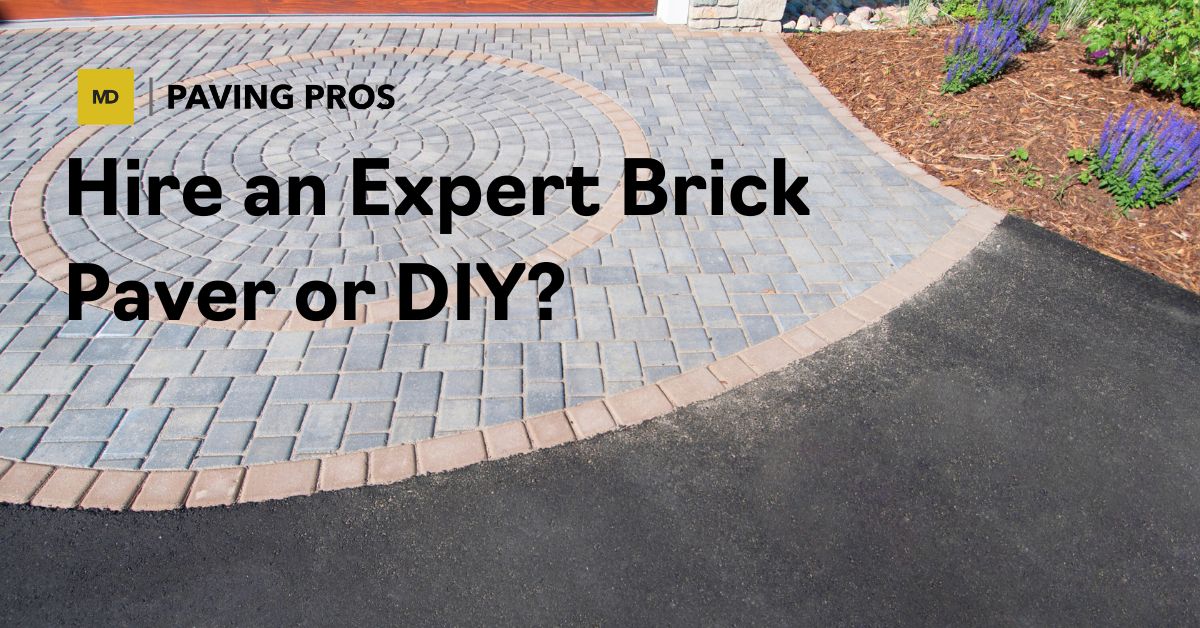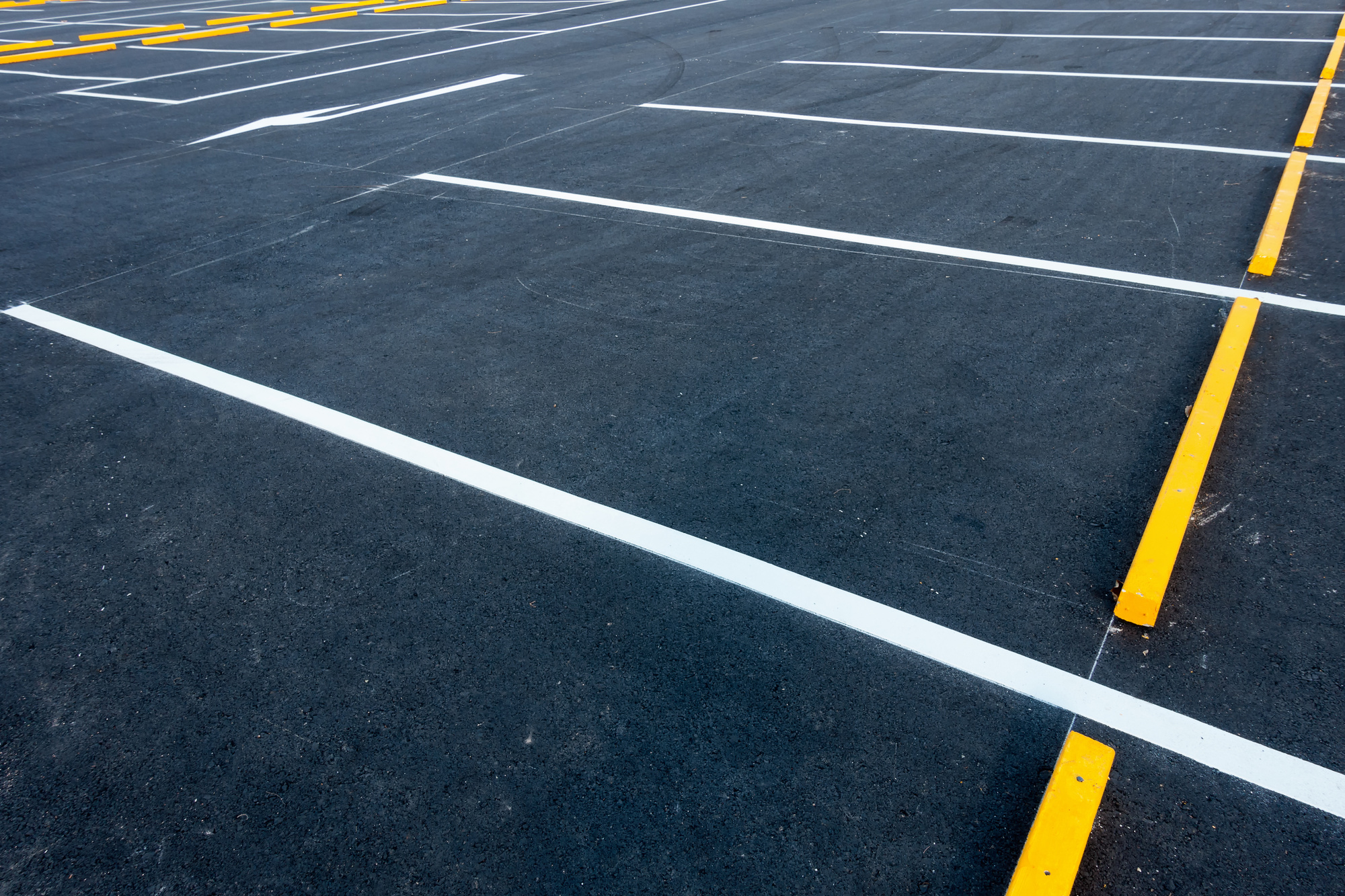Every summer, no matter how neat and tidy you may be, debris begins to pile up on our driveway. Yes, there are the usual sticks and stones that accumulate, but far worse than that is the pollen!
Pollens stain your driveway, can be difficult to remove, and cause allergy problems. All in all, having pollen on your driveway is not a good thing.
So, what can you do to take care of the issue? The most effective way to remove pollen from your driveway is to use pressure washing to remove debris and get your space spic-and-span.
What Is Pressure Washing?
Before you agree to get started with pressure washing, you’re probably asking yourself what exactly that is. Pressure washing is just what it sounds like – using high pressure water flows to wash away debris.
Don’t confuse pressure washing with power washing, however. While they’re very similar, the two techniquest have their differences as well.
What’s the Difference Between Pressure Washing and Power Washing?
It’s important to distinguish pressure washing from another common cleaning method — power washing. Pressure washing works exactly how it sounds: it utilizes water flowing at a high pressure to wash away any built-up debris. Power washing is certainly similar in that it also uses a higher pressure of water flows, but it also uses a higher water temperature. Power washing is usually preferred over pressure washing when the debris is sticky or tacky like gum or salt, but it can also cause more damage through the excess water spray. Most general cleaning of concrete can be done by pressure washing.
What makes power washing and pressure washing different is the water temperature. With power washing, the high pressure water is heated to blast away more debris. Power washing is often used for removing sticky substances from driveways, such as gum, salt, and oil. If you’re not able to heat the water, however, don’t fret! Pollen is typically blasted away with simple pressure washing.
Getting Started
To get to work on your driveway, you’ll need to first clear everything out of the way. Since pressure washing picks up loose materials, you don’t want these to fly around and become a hazard to you or your possessions.
If your driveway is close to the house or connected to walls or doors, you can protect them from the pressure washing by covering them with cardboard or painters tape.
Once your driveway is clear, you’ll want to figure out how your driveway slopes. Are there any natural drainage points? Do you have a storm drain system in place? Keep these factors in mind so that you can manage the water flow while you wash your driveway.
Degrease Your Driveway
Now that your driveway is clear of loose debris, it’s time to get down to the nitty gritty. Most driveways have tough stains on them, such as antifreeze and oil patches.
To help get oily, sticky substances off the driveway (particularly without the use of a power-washer), apply a degreaser to any sticky spots. Leave the chemicals for an hour or two to fully pull up the stain. After rinsing the spot, scrub into the area with a wire bristled brush.
You can dilute the degreaser for newer stains that don’t need as much elbow grease. Or, for particularly tough spots, use the degreaser at its full strength. Don’t be afraid to apply multiple coats.
Apply Detergent
Now that your driveway is debris-free and de-greased, you’re ready to get started! Apply detergent to the area and set up your pressure washer. You can use a low pressure nozzle on the pressure-washer to apply the detergent to the area.
Before you get to work rinsing the drive, let the detergent sit for about 15 minutes to fully take effect. Then, you can use your pressure washer to rinse away all remaining detergent.
As you can see, keeping your driveway pristine is easier than it seems! Here at MD Paving Pros, we know all the best types of driveways for making your home a high-end place to live. Give us a call to get yours today!
Can Pressure Washing Damage My Concrete Driveway?
Pressure washing is known for being one of the most satisfying ways to spend a warm afternoon while still allowing you to be able to say you were productive that day. A good pressure washing session will erase built-up dirt and grime from practically any surface and it’s an excellent way to help maintain your property.
But, like most things in life, there are pros and cons. Pressure washing your concrete driveway or walkways incorrectly can cause irreversible damage, turning that satisfying task into a much bigger headache. We’ve gathered our favorite tips to help you ensure your concrete won’t suffer under a pressure washer.
Pressure Washing Concrete Is a Must for Maintenance
Whether your property is residential or commercial, pressure washing the concrete surfaces around your building is an excellent way to improve your curb appeal and keep things looking as good as new. While a garden hose can get the job done, pressure washing brings your concrete to the next level. You can eliminate built-up grime and dirt that has accumulated throughout the changing seasons, get rid of unsightly oil stains, extend the life of your driveway and walkways without using harsh chemicals, and even get rid of weeds popping up where they don’t belong.
Pressure washers can usually be rented from your local home improvement store, or you can purchase your own for a reasonable cost — it will pay for itself in the long run! When running a pressure washer, it’s important to avoid direct contact with the water. You should also consider wearing safety glasses; if the pressure washer dislodges a piece of gravel, it will be sent flying.
Tips for Properly Pressure Washing Concrete
Before you turn on the hose, start by clearing out the area you plan to clean. Pressure washing get everything in the area wet, not just the surface the hose is aimed at. Make sure that any possessions are put away where they won’t be damaged by excess water spray. Take note of the way water flows down your driveway to ensure that the water won’t pool in any one area. You’ll also want to make sure you have your rain boots on!
If you have oil stains on your driveway, it may be a good idea to apply a degreaser to those tough spots. Let it sit for an hour or two, then scrub it with a wire brush before hitting it with the pressure washer. Degreasers and other surface cleaners can be found at any local home improvement store. While you can tackle most concrete cleaning jobs with just the pressure washer, it’s not a bad idea to apply a surface cleaner as well.
Finally, it’s important to know what type of nozzle you want for the job. The nozzle dictates the shape and intensity of the water flow and are usually color-coded to make it easy on you. Using a narrow tip is good for small, stubborn spots that need a more direct flow. For large surfaces like driveways, however, you’ll generally want to use a wider nozzle to be able to clean in an even pattern.
How Can Pressure Washing Cause Damage?
Pressure washers are powerful machines. When used incorrectly, they can cause visible damage to your concrete surfaces. The most common way pressure washing can damage your concrete driveway or walkways is by using the wrong nozzle for the job. For large, flat surfaces, you should be using the widest nozzle you can so the water can flow evenly across the concrete. Using a direct nozzle tip is more likely to break apart the concrete, causing cracks, pitting, and surface degradation. Over time, these cracks and pits will further break apart, eventually leading to a shorter life span for your driveway as a whole.
For walkways built out of pavers or bricks, using too narrow of a nozzle can cause damage to the mortar between the paving stones and can disperse the joint sand beneath them. This will cause weeds to spring up between the stones and can lead to uneven walkways, causing a safety concern.
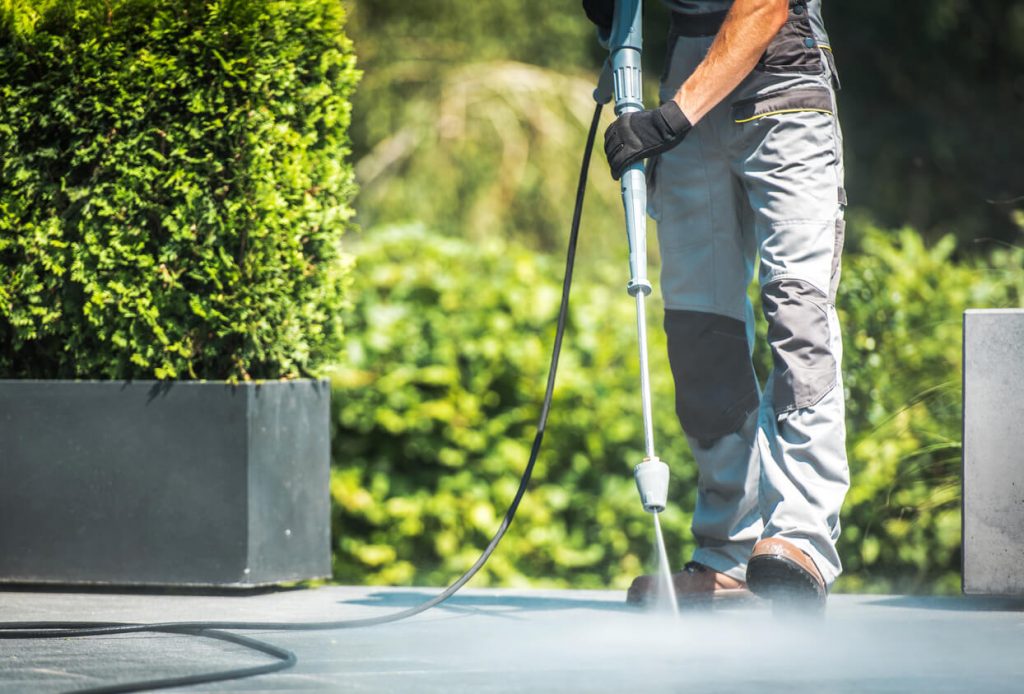
Another common mistake is simply holding the nozzle too close to the surface as you spray. As soon as you think you’re ready to start, take a few steps back. Holding the nozzle too close to the ground will cause you to spray unevenly and apply too much pressure to one area. For best results, stand 10 feet back from the surface you are spraying, then slowly walk forward until the spray is effectively removing the debris.
And while pressure washing is satisfying in that you get immediate results, there can be too much of a good thing. Pressure washing too frequently will cause your concrete surfaces to wear down faster. We recommend pressure washing your concrete driveway or walkways annually. Doing so more often will decrease the longevity of the concrete.
What Can I Do If I Damage My Concrete?
If you do cause damage to your concrete surfaces while pressure washing, the good news is that nothing is permanent! Our professional concrete contractors would be happy to assess your damage and offer recommendations for repair. We’ll work with you to enact a cost-effective repair plan that works within your budget. At MD Paving Pros, we offer a number of options for your concrete remodeling projects. Don’t wait until your problem gets worse — contact us today for a quote. Good luck and happy pressure washing!

